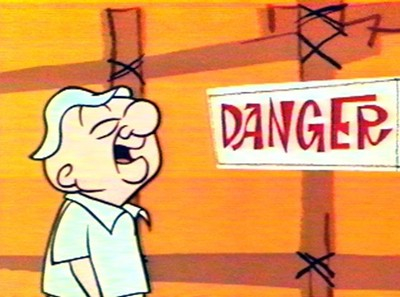
Those of you who have been hanging around Author! Author! for a while may well recognize this gorgeous image from the Book of Hours. I like to yank it out of the mothballs every now and again, because it is such an accurate depiction of how so many aspiring writers view the work of querying these days: a long, toilsome effort aimed toward impressing the powerful folks in the white castle on the hill — who may or may not be paying attention — under a sky that (we hope) conceals at least a few minor deities rooting for the underdog’s eventual success.
What’s that you say, campers? That’s what it felt like back I was trying to find the right agent back in the dimly-remembered mists of the Paleolithic era, but everyone concerns feels perfectly marvelous about the process today? Whew, that’s a relief — thanks for clearing up that little misconception.
On the off chance that I wasn’t the only writer who ever shivered in the face of seemingly unalterable industry coldness, I feel an obligation to point out from the other side of the Rubicon that even those newest to querying are not as entirely helpless in the face of it as we writers tend to tell ourselves we are. Although much of a writer’s progress along the road to publication is dependent upon factors outside her control — fads in style, fashions in content, and what kind of memoir has garnered the most scandals recently, to name but three — how an aspiring writer presents her work to the industry is in fact entirely under her own control.
Which is a really, really nice way of saying that from a professional reader’s point of view, scads of query letters traject themselves like lemmings straight from the envelope into the rejection pile with scarcely a pause in between.
Sadly, the vast majority are rejected for reasons that don’t necessarily have anything to do with the potential personality fit between the author and agent, the agent’s ability to sell the book in question, or even the quality of the writing. Because agents and their screeners read hundreds of the darned things per week, even if only 20 of them share the same basic mistake — and trust me, more of them will — the 21rst query that carries even a shade of similarity is likely to trigger a knee-jerk reaction so strong that even Dr. Pavlov would shake his head and say, “No kidding? Just because the letter was addressed to Dear Agent, rather than to an individual?”
Oh, yes, Dr. Pavlov, there are few epistolary errors that engender a stronger — or quicker — negative response than a Dear Agent letter. But that’s merely the best-known of the notorious query-readers’ pet peeves.
I heard that giant collective huff of indignation out there: you’re thinking that Millicent the agency screener is hyper-sensitive, far more eager to reject a query than to accept it, and perhaps even downright mean. Heck, judging by the expressions on your faces, you probably wouldn’t be remotely surprised to learn that she regularly eats live kittens for breakfast, snarls at babies, and honks her horn when Boy Scouts assist people with canes across the street.
Don’t be ridiculous. Millicent lives in New York City; she doesn’t drive a car.
Perhaps she does reject writers for a living, but that doesn’t mean that rejections are necessarily her fault: as I mentioned earlier in this series, many, many, MANY query letters just scream from their very first paragraph, “Reject me! I have no idea what I’m doing on your desk, much less what book category the manuscript my rambling prose professes to promote might best fit into, so why not put me out of my misery right away?”
The ubiquity of such self-rejecting letters means that the all-too-common writerly practice of blaming the rejector is not the best strategy for landing an agent. Call me zany, but if a query elicits a rejection for any reason other than that the storyline or argument in the proposed book didn’t grab Millicent or her boss, my first question is not, “Oh, how could the screener have made such a mistake?” but “May I have a look at that letter, so see how the writer may improve it?”
Why do I tend to leap straight to that conclusion, you ask? Experience, mostly. If there is a single rule of thumb that may be applied at every stage of any successful author’s career, it’s that it ALWAYS behooves us to look critically at our own writing before assuming that the only possible explanation for frowned-upon writing lies in the eye of the predisposition of the reader to frown.
My, that was a convoluted sentence, wasn’t it? Let me put it more simply: offense does not always lie in the propensity of the affronted to take umbrage. Millicent may indeed be a bit rejection-happy at times, but any writer can learn how to avoid provoking her.
As with a manuscript, the writer of a query will virtually always be better off taking steps to improve what she can control than blaming the rejection upon other factors. It is possible to learn from one’s own mistakes, even in the current insanely competitive agent-seeking environment, where the vast majority of queriers are never told precisely what made Millicent slide their letters directly into their SASEs with a copy of the agency’s prefab one-size-fits-all rejection note.
Or, in the case of e-queries, to hit the REPLY key, sending the prefab rejection reply. (You didn’t honestly believe that Millicent or her boss actually re-typed those platitudes every time, did you?)
In the spirit of trying to avoid being the object of either dismal fate, I began running through a checklist of some of the most common query letter mistakes yesterday. Let’s recap, shall we?
(1) Is my query letter longer than a single page in standard correspondence format?
(2) If my query letter just refuses to be shorter, am I trying to do too much here?
(3) If my query letter is too long, am I spending too many lines of text describing the plot?
(4) Is my query letter polite?
(5) Is it clear from the first paragraph on what precisely I am asking the agent to represent?
(6) Does my letter sound as though I am excited about this book, or as if I have little confidence in the work? Or does it read as though I’m apologizing for querying at all?
(7) Does my book come across as genuinely marketable, or does the letter read as though I’m boasting?
Please do take the time to re-read your query before you answer these questions or the ones to come. Yes, even if some of these points sound a trifle redundant to those of you who have been reading my blog for a while: you would be well within your rights to think, honestly, don’t all of us know by now to avoid sounding bitter in a query letter? Or to be polite while doing it?
Well, probably so, but humor me here, because it’s quite easy to fall into the habit of pumping out those queries without really pondering their content — or whether this particular letter is the best means of marketing to that particular agent.
In fact, serial queriers often do not change anything but the first paragraph, address, and salutation between each time they sent out their mailed letters, more or less insuring that a mistake made once will be replicated a dozen times. Copying and pasting the text of one e-mailed query into the next guarantees it.
And those of you who habitually did this were surprised to receive form-letter rejections? The electronic age has made it much, much easier to be dismissive.
In short, it’s worth reviewing what’s going out every once in a while, to ascertain that the query matches the recipient well. Which, coincidentally, brings me to the next question on the checklist:
(8) Have I addressed this letter to a specific person, rather than an entire agency or any agent currently walking the face of the earth? Does it read like a form letter?
Many aspiring writers approach quite a few agents simultaneously — and with good reason. At this point in publishing history, when many agencies don’t even respond to e-mailed queries if the answer is no, waiting to hear back from one agent before approaching the next is poor strategy. One-by-one queries can add years to the agent-finding process.
Do I hear some restless murmuring out there? “But Anne,” I hear some of you conference veterans protest, “I heard that some agents will become furious if they find out that a writer is sending out many queries simultaneously. I don’t want to scare them away from my book by breaking their rules right off the bat!”
I agree with the general principle imbedded in this cri de coeur — it’s only prudent to check an agency’s website and/or its listing in one of the standard agency guides to ascertain that you know what precisely the agent you are addressing wants to see in a query packet. If you haven’t been agent-shopping lately, the differentials can be astonishing: some want queries only, others want synopses, many ask for pages to be placed in the body of an e-mail, a few ask queriers just to go ahead and send the first 50 pages unsolicited.
The moral: there is no such thing as a one-size-fits-all query packet. In order not to run afoul of these wildly disparate expectations, a querier must be willing to do a bit of homework and follow individualized directions.
Admittedly, sometimes an agency’s listing in one of the standard guides, its website, and what one of its member agents will say at a conference are at odds. In the event of a serious discrepancy, don’t call or e-mail the agency to find out which they prefer. Go with the information that appears to be most recent — in my experience, that’s usually what’s posted either on the website or on Publisher’s Marketplace.
What no agency will EVER leave off any of its expressions of preference, however, is mention of a policy forbidding simultaneous querying, the practice of sending out queries to more than one agent at a time. Some do have policies against simultaneous submissions, where more than one agent is reading requested materials at the same time, but believe me, the agencies that want an exclusive peek tend to be VERY up front about it.
So If you have checked to ascertain that the agent of your dreams — or at least the next on your list — does not have an exclusivity policy, you should assume that s/he doesn’t. End of story. Trust me, if an agent who does prefer an exclusive peek doesn’t want other agents seeing it, s/he will let you know.
Until then, it’s a waste of your valuable time to grant a de facto exclusive to someone who hasn’t asked for it. (For some tips on dealing with an actual request for an exclusive, if and when it comes up, please see the EXCLUSIVES TO AGENTS category on the list at right.)
So why does the rumor that that most agents secretly crave exclusives (and thus penalize queriers who don’t read their minds and act accordingly) remain so pervasive? Beats me. If I had to guess, I would say that it is an unintended side effect of agents’ standing up at writers’ conferences and saying, “For heaven’s sake, don’t send out mass queries — if I see a query that’s clearly been sent to every agent in the book, I send straight it into the rejection pile.”
Since everyone in the room will nod sagely in response, the agent will not unnaturally assume that the entire audience knows that s/he is referring not to the practice of querying several agents simultaneously, but to the astonishing common feat of sending (often via e-mail) an IDENTICAL query letter to, say, a hundred agents all at once. (And if you don’t know why that’s a bad idea, you might want to check out this archived post before you launch a flotilla of your own.)
As we have discussed, a query letter designed to please all is unlikely to be geared to the specific quirks and literary tastes of any particular agent — one of the many reasons that this shotgun approach seldom works. The other, believe it or not, is that mass submitters often render the fact that they don’t know one agent on their lists from another by sending out what is known in the biz as a Dear Agent letter. As in one that begins:
Dear Agent,
I haven’t the vaguest idea who you are or what you represent, but since the big publishing houses don’t accept submissions from unagented authors, I come to you, hat in hand, to beg you to represent my fiction novel…
Why, when there is so much to resent in this (probably quite honest) little missive, would the salutation alone be enough to get this query rejected without reading farther? Well, to folks who work in agencies, such an opening means only one thing: the writer who sent it is sending an identical letter to every agent listed on the Internet or in one of the standard agency guides.
Willy-nilly, with no regard to who represents what and consequently who is likely to be interested in the book at hand.
Which means, they reason, that it is unlikely to the point of mockery that the book being proposed is going to fit the specific requirements and tastes of any of the agents currently domiciled at the agency. And, most will additionally conclude, the writer hasn’t bothered to learn much about how the publishing industry works.
Yes, yes, I know: I’ve talked about this phenomenon before in this series, but I live in terror that even one of my readers will make this fundamental mistake in the interest of saving time. Since virtually any Millicent will simply pitch a Dear Agent letter into the reject pile, if not actually the trash (Dear Agent letter-writers seldom know to include SASEs), it’s in your best interest to make it quite, quite obvious to whom you are addressing your missive. In fact, the query most likely to succeed is one that is specialized not only in the salutation, but in the first paragraph as well.
How, you ask? Good question.
(9) Do I make it clear in the first paragraph of the letter SPECIFICALLY why I am writing to THIS particular agent — or does it read as though I could be addressing any agent in North America?
This is a corollary of the last, of course — to put it another way, writers aren’t the only ones screaming at the heavens, “Why me? Why me?” Agents scream it, too, albeit with a slightly different meaning.
No, but seriously, agents (and their screeners) wonder about this. Given half a chance and a martini or two, many agents will complain vociferously about queries that read as though the writer simply used a mail merge to address letters to every agent listed on a particular website or in a given guide.
Those of you who have been following this blog for a while may find this question SLIGHTLY familiar, and for good reason: this is a NOTORIOUS agents’ pet peeve.
So it’s worth taking a look at your query letter and asking yourself if it answers the question: there are hundreds and hundreds of literary agents in the United States alone — why did you choose this one, out of all others, to query? What specifically about this agent’s track record, literary tastes, and/or bio led you to say, By gum, I would like this person to represent my work?
And no, in this context, because she is an agent and I desperately want to sell my book, is not a reason likely to impress Millicent. She hears it too often.
Remember, agents — like most other people — tend to be proud of their best work: if you want to get on their good side, showing a little appreciation for what they have done in the past is just good strategy. Especially if you can honestly compliment them on a project they really loved, or one that was unusually difficult to sell.
See why I kept urging you earlier this summer to ask those panels of agents at conferences some pointed questions about their favorite projects? I was just looking to help you glean some useful information.
I picked this little trick up not at writers’ conferences, but in academia. When a professor is applying for a job, she is subjected to a form of medieval torture known as a job talk. Not only is she expected to give a lecture in front of the entire faculty that is thinking of hiring here, all of whom are instructed in advance to jump on everything she says with abandon, but she is also expected to have brief private meetings with everyone on the faculty first.
It’s every bit as horrible as it sounds, like going through a series of 20 or 30 interviews with authors who think simply everyone in the universe has read their work. (Everyone smart, anyway.) If you’re the job candidate, you’d better have at least one pithy comment prepared about each and every faculty member’s most recent article, or you’re toast.
Gee, I can’t imagine why I didn’t want to remain in academia. But it did teach me something very valuable indeed: pretty much every human being affiliated with every book ever published likes to be recognized for the fact.
Fortunately, it’s very easy to work a compliment into a query letter without sounding cheesy or obsequious. If the agent you are querying has represented something similar to your work in the past, you have a natural beginning:
Since you so ably represented X’s excellent book, {TITLE}, I believe you may be interested in my novel…”
I had lunch a while back with a writer who used this method in a pitch with triumphant success. The agent was blown away that the writer had taken the time to find out whom she represented and do a little advance reading.
There are many ways to find out what an agent has represented. Check the acknowledgments of books you like (authors often thank their agents), or check the agency’s website to see whom the agent represents. If all else fails, call the book’s publisher, ask for the publicity department, and ask who the agent of record was; legally, it’s a matter of public record, so they have to tell you.
Actually, with small publishers, this isn’t a bad method for finding out what they are looking to publish. I once had a charming conversation with an editor at a small Midwestern press, who confided to me that when she had acquired the book about which I was inquiring, the author did not yet have an agent. Sensing an opportunity, I promptly pitched my book to her — and she asked me to send her the first fifty pages right away.
Moral: sometimes opportunities are hiding in some unexpected places. For instance…
(10) If I met this agent or editor at a conference, or am querying because I heard him/her speak at one, or picked him/her because s/he represents a particular author, do I make that obvious immediately?
I am surprised at how often writers seem reluctant to mention this, but since such a low percentage of the aspiring writers out there attend conferences (under 4%, according to the last estimate I saw), attending a good one that the agent you’re querying also attended is in fact a minor selling point for your book: the prevailing wisdom goes that writers who make the investment in learning how to market their work professionally tend to have more professional work to present.
A kind of old-fashioned notion, true, but if you’re a conference-goer, it’s one you should be riding for all it is worth.
If you have heard the agent speak at a conference, read an article she has written in a writer’s magazine or online, or even just noticed that your favorite author thanked her in the acknowledgments of a book you liked, mention that in the first line of your query letter. If you have no such personal reason, be polite enough to invent a general one:
Since you represent literary fiction, I hope you will be interested in my novel…
I would suggest being even more upfront than this, if the conference in question was a reputable one and you did in fact attend it. Why not write the name of the conference on the outside of the envelope, in approximately the same place where you would have written REQUESTED MATERIALS had you pitched to the agent successfully there?
And if you are an e-querying type, why not mention it in the subject line of the e-mail? (Also a good idea to include: the word QUERY.)
Oh, and lest I forget to mention it later in this series:
(11) Am I sending this query in the form that the recipient prefers to receive it? If I intend to send it via e-mail, have I quadruple-checked that the agency accepts e-mailed queries?
Stop laughing, hard-core web fiends. The publishing world runs on paper — even as I write this, it’s still far from unusual for a prestigious agency not to accept e-submissions at all. Even agencies with websites (which not all of them maintain, even today) that accept submissions directly through the website often employ agents who prefer paper queries, even from writers residing in foreign countries for whom getting the right stamps for the SASE is problematic. (Don’t worry, those of you reading this abroad: I’m going to be talking soon about how to deal with the stamp problem.)
Double-check the agency’s policy before you e-query. This information will be in any of the standard agency guides, and usually on the website as well.
If you’re in any doubt, query via regular mail — strategically, it’s a better idea, anyway.
Yes, you read that correctly. Generally speaking, I’m not a fan of querying via e-mail, for the exceedingly simple reason that it’s far, far less work to reject someone by the press of a single button than by stuffing a response into a SASE. A truly swift-fingered Millicent can reject 50 writers online in the time that it would take her to reject 10 on paper.
Not to mention the fact that the average reader scans words on a screen 70% faster than the same words on paper. (Or at least she did the last time I checked the statistics.) I can’t conceive of any writer who has thought about it actively longing to have Millicent spend less time reading his letter than she already does, can you?
The relative speed of scanning e-queries is why, in case you’re wondering, quite a few of the agencies that actively solicit online queries tend to respond more quickly than those that don’t. Or not at all — which means that it’s also worth your while to check an agency’s policy on responding to e-queries before you approach them; many have policies that preclude responding to a querier if the answer is no.
I sense an unspoken question hanging in the air right now. Go ahead; ask.
“But Anne,” I hear many of you shout, “what happens if I accidentally send an e-query to an agent who doesn’t like them, or a paper query to one who prefers to be approached electronically? That won’t result in an automatic rejection, will it?”
Not necessarily. But let me ask you this: who would you prefer to read your letter, an agent calmly going through a stack (or list) of queries, or an agent whose first thought upon seeing your epistle is, “Oh, God, not another one! Can’t any of these writers READ? I’ve said in the last ten years’ worth of Herman’s Guides that I don’t want to be queried via e-mail!”
I don’t know about you, but given my druthers, I would select the former.
Call me old-fashioned, but I believe that just as it’s polite to address a person the way he prefers to be addressed, rather than by a hated nickname, a courteous writer should approach an agent in the manner she prefers to be approached. Those with strong preferences either way seldom make a secret of it; verify before you send.
And before anyone out there asks: yes, most agents will assume that a writer worth having as a client will have gone to the trouble of learning something about their personal preferences. If they have expressed a pet peeve in one of the standard agency guides, they will assume that you are aware of it.
While we’re on the subject of double-checking, allow me to sneak in one more quick question before I sign off for the evening:
(12) Am I absolutely positive that I have spelled the agent’s name correctly, as well as the agency’s? Am I positive that the letter I have addressed to Dear Mr. Smith shouldn’t actually read Dear Ms. Smith? Heck, am I even sure that I’m placing the right letter in the right envelope?
I hear some titters out there, but you wouldn’t BELIEVE how common each of these gaffes is. The last is usually just the result of a writer’s being in a hurry to get the next set of queries in the mail, and tend to be treated accordingly, but the first two constitute major breaches of etiquette.
And yes, an agent with a first name that leaves gender a tad ambiguous is every bit as likely to resent an incorrect salutation as a Rebecca or Stephen would. Often more, because a Cricket, Chris, or Leslie would constantly be receiving queries apparently addressed to someone of the opposite sex.
If you’re in serious doubt, call the agency and ask point-blank whether the agent is a Mr. or Ms. (Quick note for those querying US agents from other parts of the world: currently, Mr. or Ms. are the only two options, unless the person in question happens to be a doctor or a professor; unless a woman makes a point of identifying herself as a Miss or Mrs., Ms. is the proper salutation.)
I know, I know: you’ve heard 4500 times that a writer should NEVER call an agency until after he has a signed representation contract in hand or the agent has left a message asking him to call back, whichever comes first. While it is quite true that allowing the agent to set the level of familiarity in the early stages of exchange is good strategy, most offices are set up to allow a caller to ask a quick, anonymous question, if he’s polite about it.
As long as you don’t ask to speak to the agent personally and/or use the occasion to pitch your book, you should be fine.
Have you noticed how many of these tips boil down to some flavor of be clear, do your homework, and be courteous? That’s not entirely accidental: as odd as it may seem in an industry that rejects so many so brusquely, manners honestly do count in this business.
As my grandmother was fond of saying, manners cost nothing. But as I am prone to tell my clients and students, not exhibiting courtesy can cost an aspiring writer quite a lot.
So sit up straight, brush your teeth, and help little old ladies across the street; it will be great practice for working with an agent or editor.
More of the checklist follows next time, of course. In the meantime, keep up the good work!



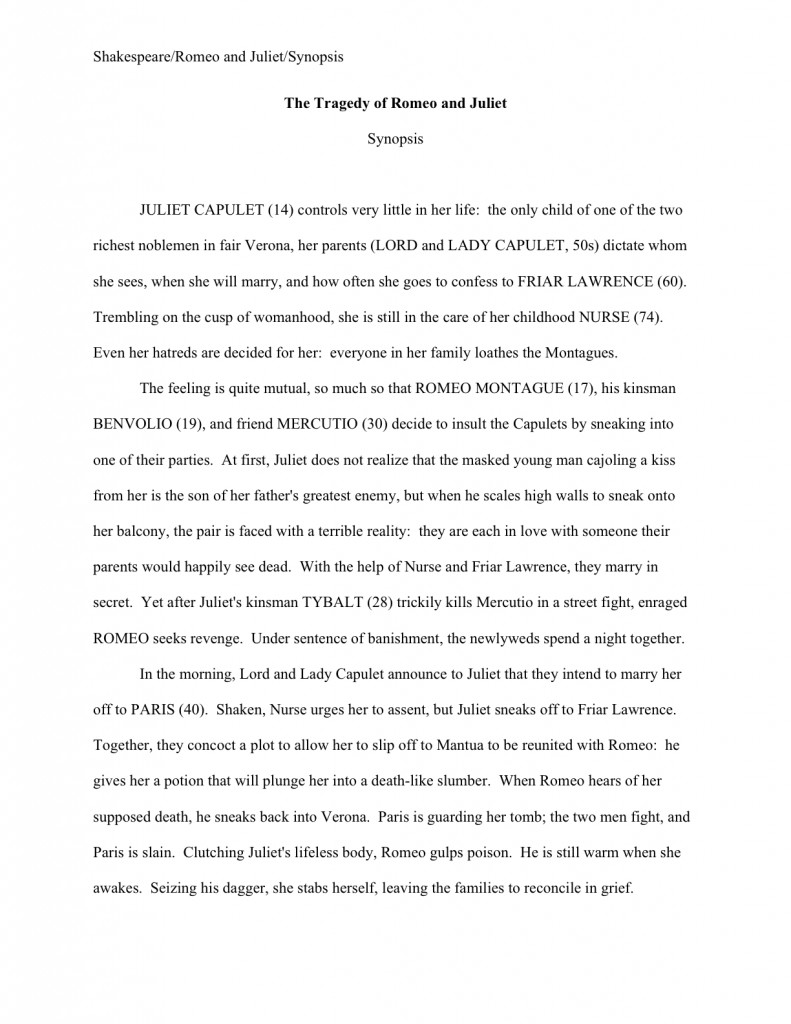
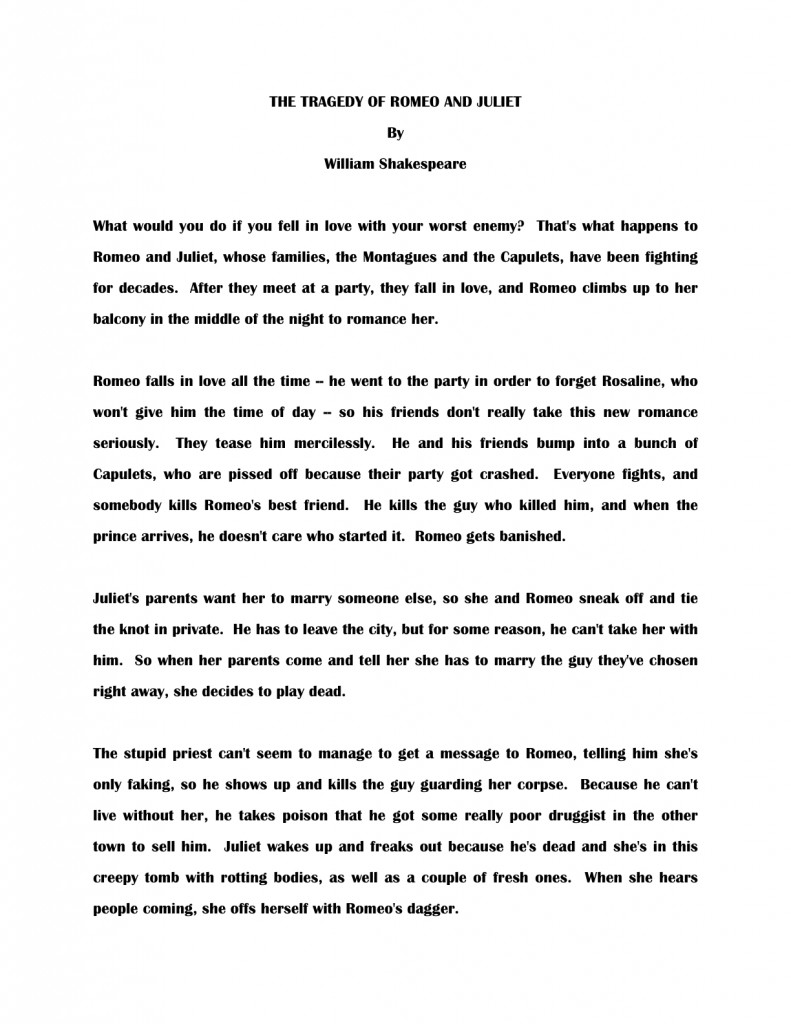
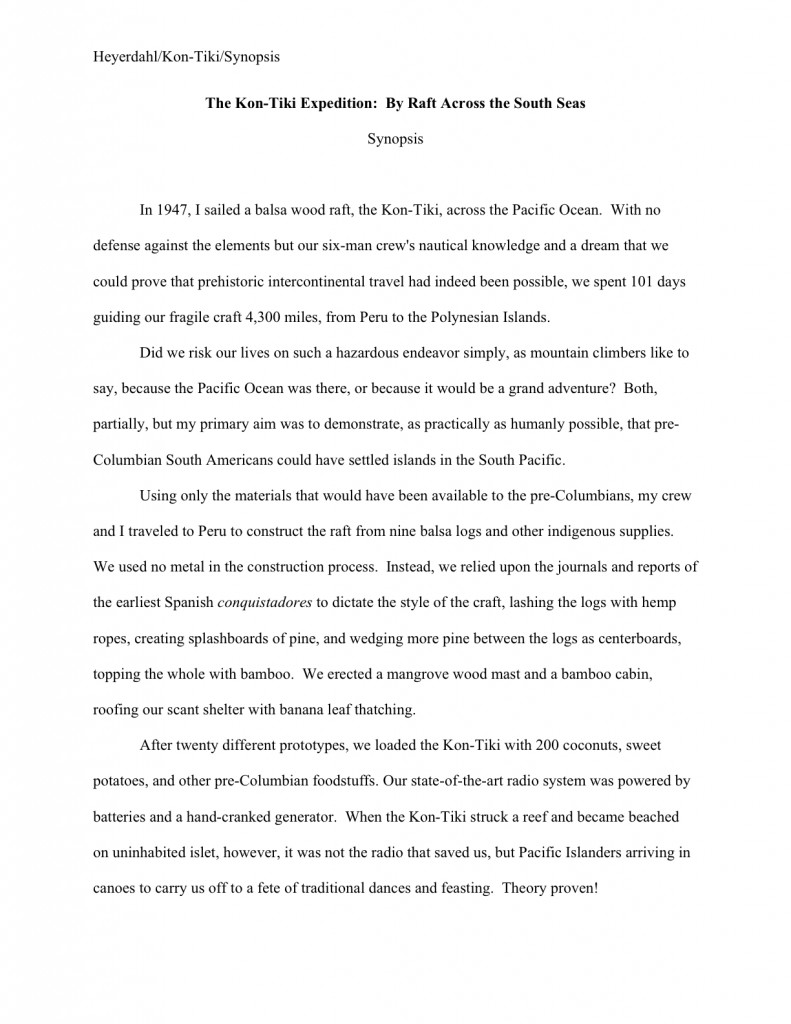
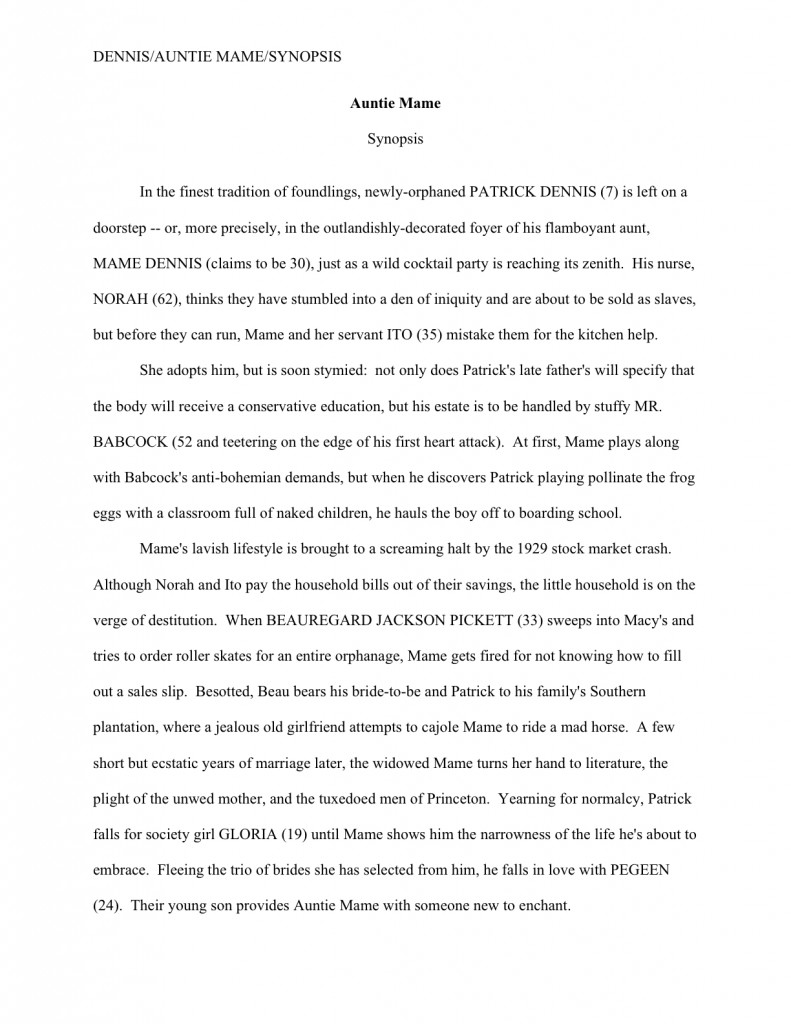

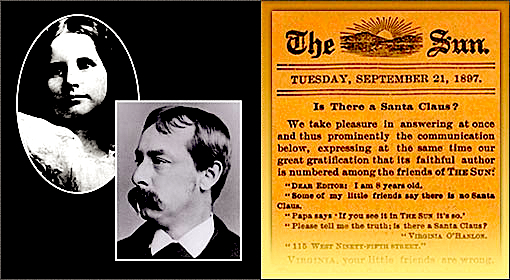
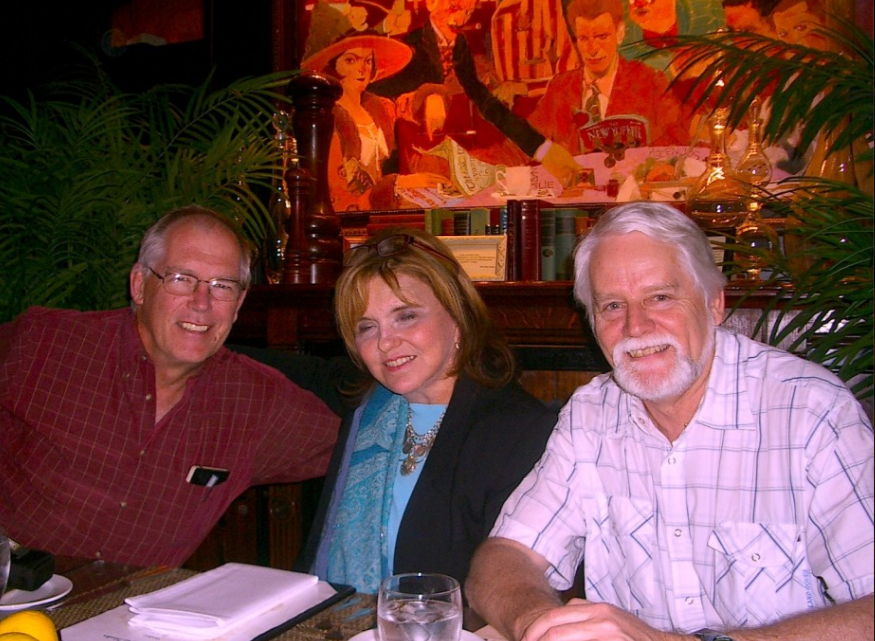
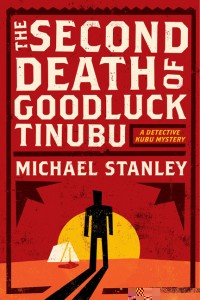
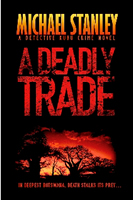 How can a man die twice?
How can a man die twice?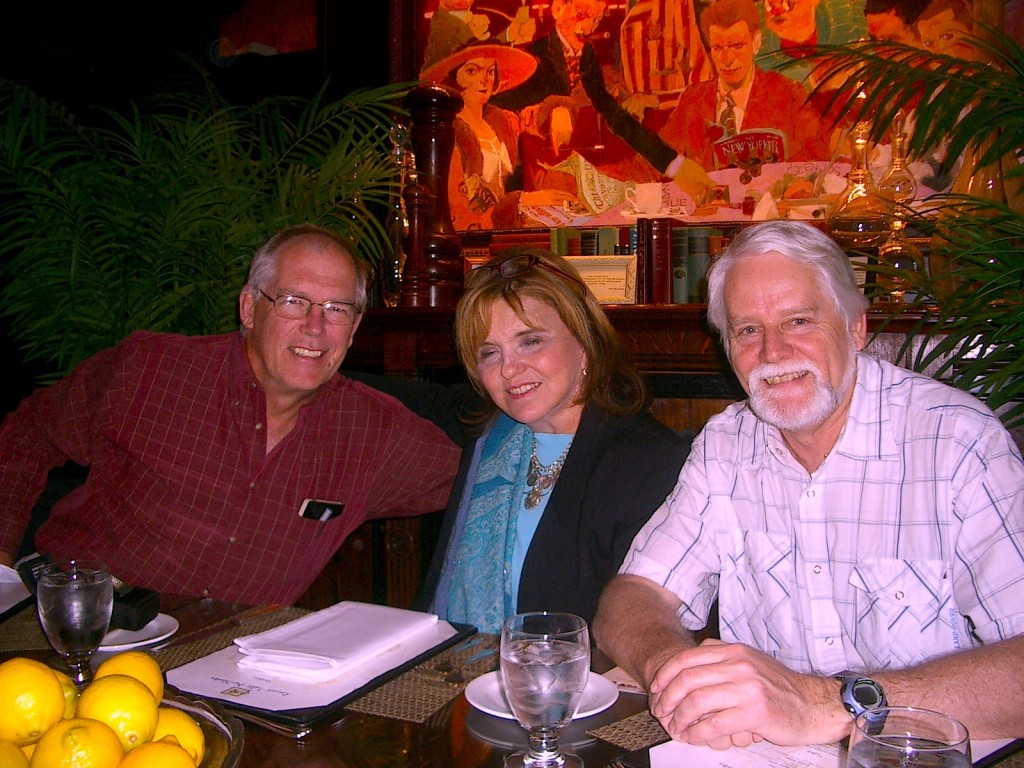
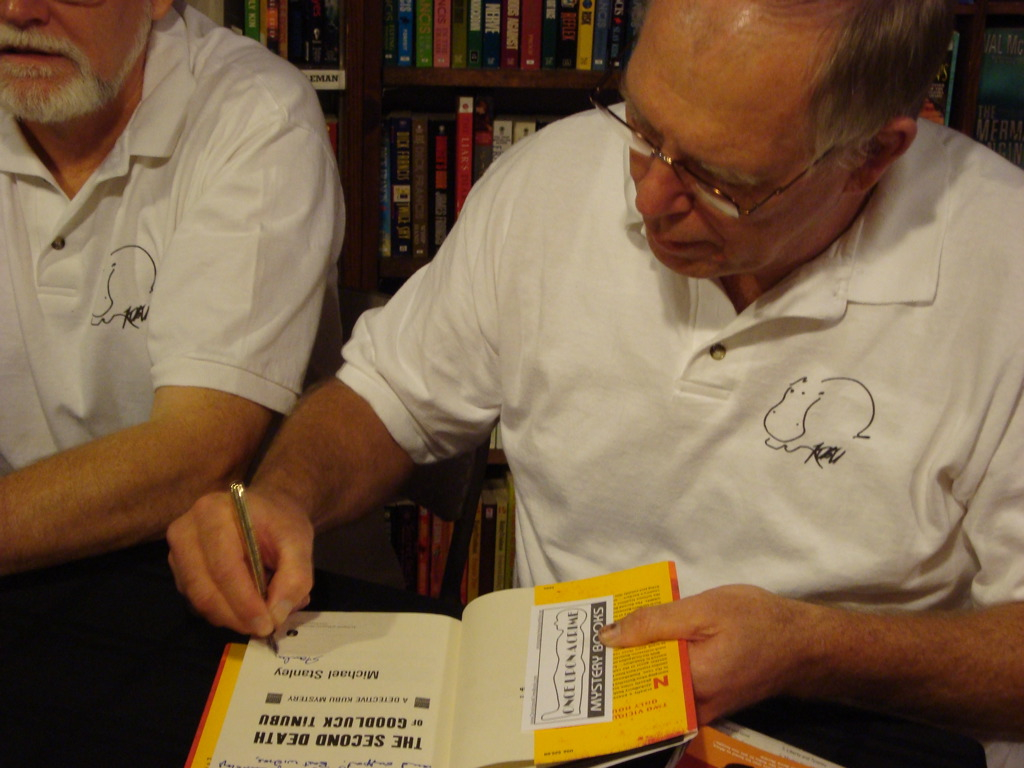
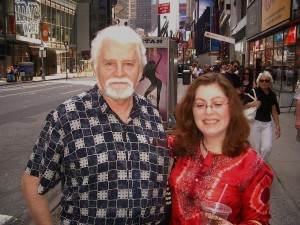
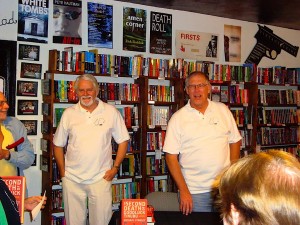

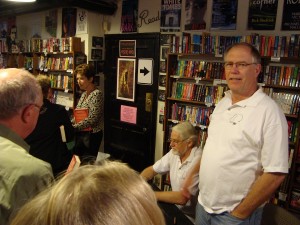
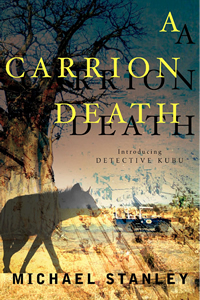
 Michael Stanley is the writing team of Michael Sears and Stanley Trollip.
Michael Stanley is the writing team of Michael Sears and Stanley Trollip. 
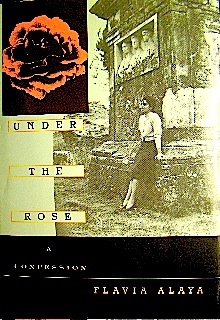


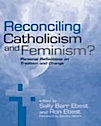

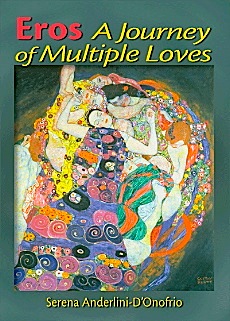






















 (1) As with the keynote and the elevator speech, most pitchers make the mistake of trying to turn the pitch proper into a summary of the book’s plot.
(1) As with the keynote and the elevator speech, most pitchers make the mistake of trying to turn the pitch proper into a summary of the book’s plot. (2) Most pitchers don’t stop talking when their pitches are done.
(2) Most pitchers don’t stop talking when their pitches are done. (3) The vast majority of conference pitchers neither prepare adequately nor practice enough.
(3) The vast majority of conference pitchers neither prepare adequately nor practice enough. (4) Most pitchers harbor an absurd prejudice in favor of memorizing their pitches, and thus do not bring a written copy with them into the pitch meeting.
(4) Most pitchers harbor an absurd prejudice in favor of memorizing their pitches, and thus do not bring a written copy with them into the pitch meeting. (5) Most pitchers don’t realize until they are actually in the meeting that part of what they are demonstrating in the 2-minute pitch is their acumen as a storyteller. If, indeed, they realize it at all.
(5) Most pitchers don’t realize until they are actually in the meeting that part of what they are demonstrating in the 2-minute pitch is their acumen as a storyteller. If, indeed, they realize it at all. (6) Few pitches capture the voice of the manuscript they ostensibly represent.
(6) Few pitches capture the voice of the manuscript they ostensibly represent.  (7) Very few pitches include intriguing, one-of-a-kind details.
(7) Very few pitches include intriguing, one-of-a-kind details.  (8) Most pitchers assume that a pitch-hearer will hear — and digest — every word they say, yet the combination of pitch fatigue and hectic pitch environments virtually guarantee that will not be the case.
(8) Most pitchers assume that a pitch-hearer will hear — and digest — every word they say, yet the combination of pitch fatigue and hectic pitch environments virtually guarantee that will not be the case. (9) Few pitchers are comfortable enough with their pitches not feel thrown off course by follow-up questions.
(9) Few pitchers are comfortable enough with their pitches not feel thrown off course by follow-up questions. (10) Far too many pitchers labor under the false impression that if an agent or editor likes a pitch, s/he will snap up the book on the spot. In reality, they’re going to want to read the manuscript first.
(10) Far too many pitchers labor under the false impression that if an agent or editor likes a pitch, s/he will snap up the book on the spot. In reality, they’re going to want to read the manuscript first. If the agent is interested by your pitch, she will hand you her business card and ask you to send some portion of the manuscript — usually, the first chapter, the first 50 pages, or for nonfiction, the book proposal. If she’s very, very enthused, she may ask you to mail the whole thing.
If the agent is interested by your pitch, she will hand you her business card and ask you to send some portion of the manuscript — usually, the first chapter, the first 50 pages, or for nonfiction, the book proposal. If she’s very, very enthused, she may ask you to mail the whole thing.


